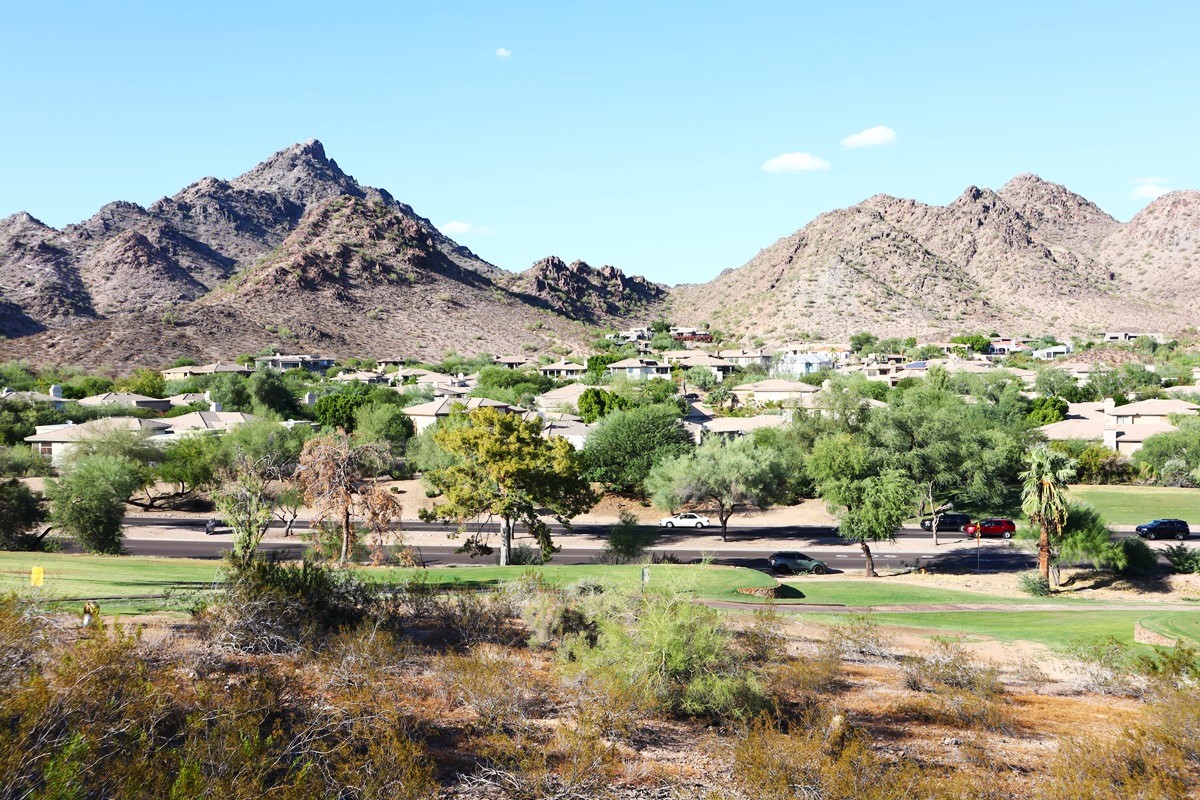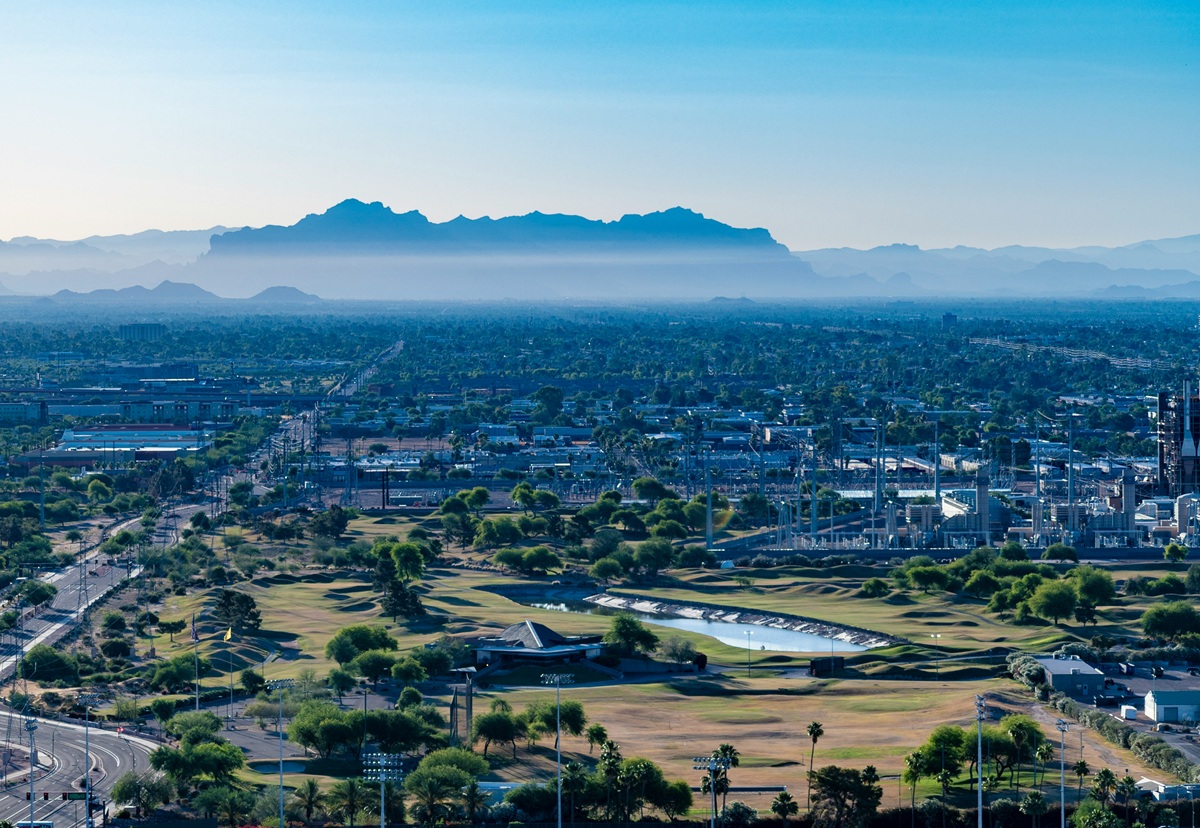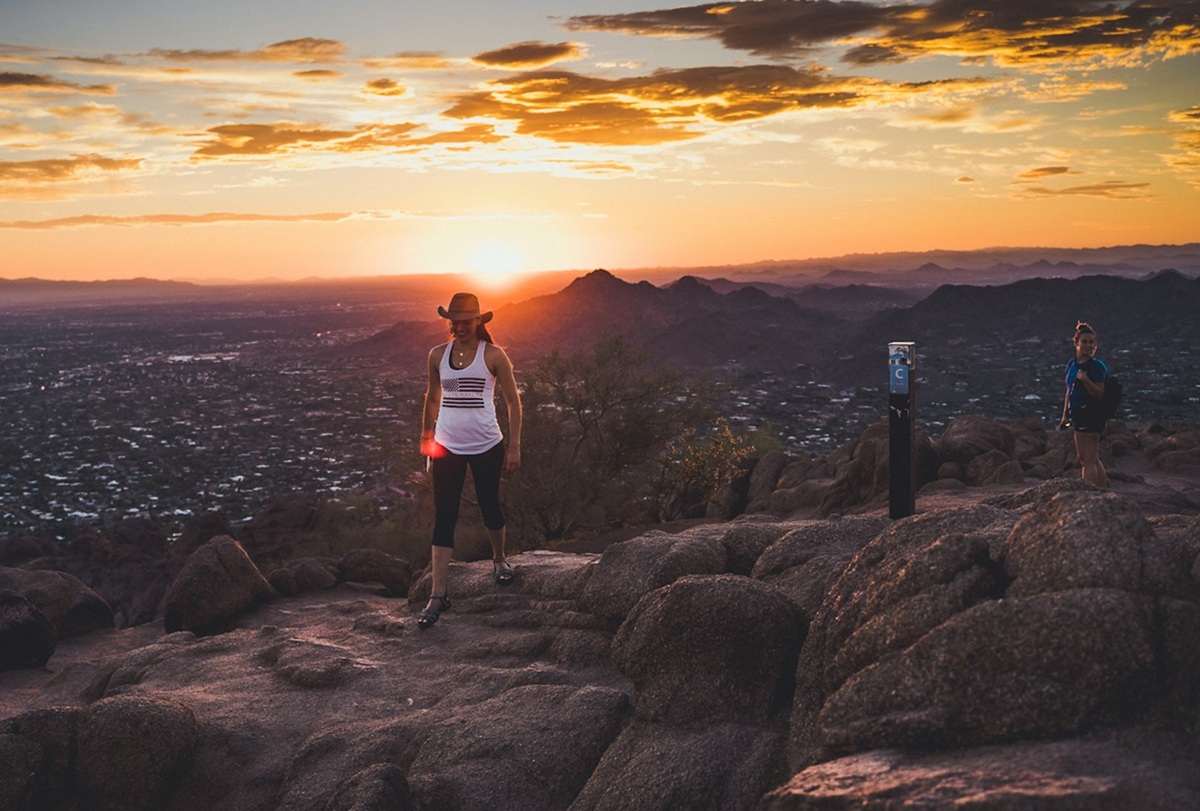Is Arizona A Good Place To Live? Here’s What You Should Know
Arizona! Good Place To Live?
Thinking about moving to Arizona or simply curious about what it's like to live there? Arizona is a state known for its stunning natural landscapes, abundant sunshine, and unique attractions. With its sunny weather and outdoor activities, it attracts those who love adventure and relaxation in equal measure. The state boasts a strong economy and a laid-back lifestyle, making it an enticing choice for many.
Arizona offers an affordable cost of living, which appeals to both individuals and families looking to relocate. The relatively low cost of living is a significant advantage for those wanting to stretch their budget while enjoying a comfortable lifestyle.
Towns and cities within Arizona offer a mix of urban and rural vibes, catering to diverse preferences.
The natural beauty of Arizona is unmatched, from the Grand Canyon to the picturesque desert scenery. Many find joy in its warm climate and the various recreational activities available year-round. With modern infrastructure, Arizona provides a pleasant living experience for those who choose to call it home.
Geographic Appeal and Natural Attractions
Arizona is rich with natural beauty and diverse landscapes. The state offers breathtaking views and various outdoor activities for those who enjoy nature. Known for its unique features like the Grand Canyon and diverse ecosystems, Arizona is a popular destination for outdoor enthusiasts.
Explore the Grand Canyon State
Arizona, often referred to as the Grand Canyon State, is home to one of the most famous natural landmarks in the world—the Grand Canyon. This massive landform offers visitors spectacular views of its immense size and colorful landscape.
The Grand Canyon provides opportunities for hiking and exploring. With its steep sides and layers of red rock, it's a favorite for photographers and nature lovers alike.
Besides the Grand Canyon, Arizona also boasts other stunning geological formations like Sedona's red rocks and the Painted Desert.
Parks and Outdoor Activities
Arizona's numerous parks cater to a variety of interests. Sonoran Desert is known for its unique ecosystem, featuring cacti and diverse wildlife. This desert provides ample space for hiking and biking enthusiasts.
National parks like Saguaro National Park offer trails ideal for both beginners and seasoned hikers.
For those interested in forests, the Coconino National Forest provides lush, green landscapes and access to peaks such as Humphreys Peak, the state's highest point. Skiing is available in areas like Flagstaff, where snowfall offers winter fun. Fishing is another activity for outdoor lovers, with lakes and rivers in various parts of the state.
Climate and Weather Patterns
Arizona's climate varies greatly across regions. In the northern part of the state, the Colorado Plateau experiences high precipitation and cooler temperatures. Areas like Flagstaff receive significant snowfall during the winter months, supporting skiing.
In contrast, the southern part, including the Sonoran Desert, is known for its warmer climate. Here, temperatures can soar during the summer, attracting those who enjoy sunshine and heat.
The diverse weather patterns allow residents and visitors to enjoy a range of activities from hiking in mild conditions to exploring hot desert landscapes.

Economic Opportunities
Arizona offers a dynamic job market with wide-ranging industries and a variety of economic advantages. The state's cost of living and housing market also play crucial roles in making it an appealing place for many.
Job Market and Industries
Arizona boasts a vibrant job market with significant growth in technology, healthcare, and aerospace sectors. Key employers like Intel are driving innovation and providing numerous job opportunities.
Defense and technology stand as strongholds in Arizona's economic landscape. The state also has a low unemployment rate, making it a hub for professionals seeking career advancements. The tourism industry also contributes significantly to the economy, offering jobs and fostering economic enhancement throughout the state.
Cost of Living and Housing Market
While some find Arizona's cost of living affordable, housing prices have seen increased demand, impacting affordability.
The housing market varies, with options ranging from urban developments to suburban neighborhoods. Despite recent growth, the state still offers relatively low housing costs compared to coastal cities. Living expenses such as transportation and groceries remain competitive, potentially allowing for a balanced and financially comfortable life for many residents.
Urban and Rural Living
Arizona offers a wide range of living experiences, from the bustling city centers of Phoenix and Tucson to the peaceful rural towns that dot the landscape. Both environments bring unique qualities and lifestyles, each appealing to different sets of preferences and needs.
City Life in Phoenix and Tucson
Phoenix and Tucson are pivotal urban centers in Arizona. Phoenix, as the state capital, stands out with its extensive cultural scene, numerous dining options, and robust job market. It's a tech and business hub, where companies like Intel and American Express have significant operations.
Tucson, while smaller and slightly less urbanized than Phoenix, hosts the University of Arizona, bringing vibrancy through its college-town atmosphere. The city's southwestern charm reflects in its architecture and plentiful local shops.
Residents of these cities enjoy access to arts and recreational activities, with Phoenix's Desert Botanical Garden and Tucson's Arizona-Sonora Desert Museum being popular spots.
Suburban areas like Scottsdale, Chandler, and Gilbert offer an excellent balance of urban convenience and a quieter suburban feel. These communities deliver spacious residential areas with good educational facilities and community parks.
Small Town Charm and Suburban Communities
Rural Arizona, with areas like Flagstaff and Sedona, provides a slower-paced lifestyle surrounded by natural beauty. Flagstaff, nestled near the San Francisco Peaks, is known for its scenic mountain views and outdoor activities. Sedona draws many for its spectacular red rock landscapes and spiritual retreats.
These towns offer a sense of community and close-knit neighborhoods. The suburban communities around larger cities, such as Mesa and Tempe, combine the familiarity of small-town life with easy access to urban amenities.
These areas emphasize local culture, community events, and outdoor activities, making them attractive for those seeking a quieter life without sacrificing access to what larger cities offer.
Cultural and Social Environment
Arizona provides a rich and varied cultural experience, offering a tapestry of diverse communities, vibrant education hubs, and a culinary scene full of flavors. It also thrives with sports enthusiasm and plenty of activities for recreation.
Diversity and Inclusivity
Arizona is home to a rich blend of cultures and traditions, featuring 22 Native American tribes. The state’s cultural festivals celebrate a broad spectrum of traditions, providing opportunities to experience and enjoy different cultural expressions.
The thriving arts scene includes museums and galleries showcasing Native American and Mexican art. Arizona's commitment to inclusivity is evident through its diverse community activities and support for various cultural heritage events.
Education System and Universities
Arizona has a strong educational foundation with notable options in higher education. The University of Arizona stands out with its research programs and is among the leading public universities in the country.
Arizona State University and Northern Arizona University are also pivotal in providing quality education. The state invests in K-12 education with public and private schools offering a range of programs to meet the needs of students.
Food, Cuisine, and Restaurants
The food scene in Arizona is a delightful blend of flavors. Mexican cuisine is a standout, with authentic Mexican restaurants offering everything from street tacos to gourmet dishes.
The culinary landscape also features traditional Native American foods and a mix of modern dining experiences in cities like Phoenix and Tucson. Food festivals and farmers' markets are popular, providing a taste of the local produce and cuisine.
Sports and Recreation
For sports enthusiasts, Arizona offers events for fans of NFL, MLB, NBA, and NHL with teams such as the Arizona Cardinals. The state encourages outdoor activities with incredible hiking trails, including the Grand Canyon and Sedona’s red rocks.
Recreational opportunities abound with camping, fishing, and boating available in various locations. The mild winters offer a perfect backdrop for exploring the numerous sports and recreation options year-round.

Lifestyle and Wellbeing
Arizona offers a range of activities and services that appeal especially to families and retirees. With its scenic beauty and modern amenities, the state provides opportunities for a balanced lifestyle.
Healthcare Services
Healthcare services in Arizona are varied, with numerous hospitals and specialized clinics spread across the state. Larger cities like Phoenix and Tucson have advanced medical facilities, offering residents multiple options for care.
Many healthcare providers in Arizona accept a wide range of insurance plans, making it easier for residents to access the services they need.
Telemedicine is gaining popularity, providing a convenient way to consult with specialists. For those who prioritize health and wellness, Arizona's clean air and natural surroundings aid in maintaining a healthy lifestyle.
Activities for Families and Retirees
Arizona's diverse range of outdoor activities is ideal for families and retirees. The state is known for its stunning landscapes, allowing for activities like hiking, camping, and picnicking. Locations such as the Grand Canyon and Sedona offer breathtaking views and unique experiences.
Retirees can enjoy leisurely pursuits like golfing or exploring local botanical gardens. Family-friendly events and community activities contribute to a sense of connection and entertainment for all ages. With many sunny days, Arizona encourages an active, outdoor lifestyle.
Pros and Cons of Living in Arizona
Arizona offers a unique blend of advantages such as warm weather and beautiful landscapes, alongside challenges like intense summer heat and occasional dust storms. Understanding these aspects can help in deciding whether it's the right place to call home.
Benefits of Arizona Residency
Arizona is known for its abundant sunshine, making it a paradise for those who love the sun. The state enjoys more than 300 sunny days a year, perfect for outdoor activities like hiking and golfing.
The climate is generally warm, which many find appealing. Arizona’s cost of living can be reasonable, especially compared to other sunny locations. A strong job market adds to its appeal, offering opportunities in various sectors such as technology and healthcare.
Natural beauty is another highlight. From the Grand Canyon to sprawling desert landscapes, Arizona offers stunning scenery. The lifestyle is often described as relaxed and laid-back, ideal for those seeking a slower pace.
Challenges and Considerations
Living in Arizona comes with its challenges. Summers can be extreme, with temperatures often soaring above 100°F for extended periods. This intense heat can be uncomfortable and requires effective cooling strategies.
Dust storms, also known as haboobs, are a common occurrence. These can reduce visibility and cause health issues for those with respiratory problems. Public transportation is limited in many areas, making a car necessary for most residents.
Traffic can also be a concern, particularly in larger cities like Phoenix and Tucson. Residents should be prepared for longer commutes during peak hours. While Arizona offers many attractions, these challenges are important to consider for daily living.
Connectivity and Transportation
Transportation in Arizona varies, with car reliance being high due to the limitations of public transit. While some areas have improved services, others still face challenges.
Local Commutes and Car Reliance
Most residents in Arizona depend on cars for daily commutes. Cities like Phoenix often require a vehicle due to sprawling urban design and limited walkability. Traffic congestion is common during peak hours, especially on major highways.
Key Points:
- Car Dependence: Essential for most residents.
- Traffic Levels: Busy during rush hours.
- Commuting Challenges: Long distances between amenities can be time-consuming.
Despite these issues, many find the freedom of having a car beneficial for reaching work, school, and leisure destinations easily.
Public Transportation and Accessibility
Public transportation options in Arizona include buses and light rail services, mainly concentrated in metropolitan areas like Phoenix and Tucson. These services offer a cost-effective travel method but may not cover all neighborhoods efficiently.
Public transit doesn't always reduce car dependence, as access can vary by location. The Phoenix Metropolitan Area has seen some growth in options, yet more remote areas still face accessibility issues.
Efforts are ongoing to expand and improve public transit systems to better serve residents across wide-ranging communities.

Relocating to the Grand Canyon State
Arizona offers stunning landscapes, from the Grand Canyon to scenic deserts. With a warm climate, it attracts many seeking sunshine and adventure. Moving to Arizona requires planning and adjusting to a unique desert lifestyle.
Planning Your Move
When moving to Arizona, it's crucial to plan carefully. The state borders California, Nevada, New Mexico, and Mexico, offering diverse geographic locations and attractions. Researching local neighborhoods and understanding the proximity to schools, work, and amenities can aid in choosing the right area.
Consider the cost of living, which can vary depending on the city. Phoenix and Tucson are popular choices, offering vibrant communities and various amenities. For those interested in rural living, smaller towns provide a quieter atmosphere.
Explore options for housing, from buying new homes to renting. Check local real estate trends and availabilities to ensure a smooth transition. Hire reliable movers and plan your travel to Arizona, considering the weather and distance from your current location.
Adjusting to the Desert Lifestyle
Living in Arizona means adapting to its desert climate, characterized by hot summers and mild winters. It's important to stay hydrated and protect yourself from the intense sun. Lightweight, breathable clothing and sunscreen are essential.
Residents can enjoy outdoor activities throughout the year, including hiking and exploring national parks. The state's natural beauty and cultural heritage attract those who appreciate outdoor life. Be sure to familiarize yourself with local flora and fauna to make the most of your surroundings.
Adapting to a relaxed, laid-back lifestyle can enhance your experience in Arizona. Engaging with the community and participating in local events can ease the transition, fostering connections in your new home.
Frequently Asked Questions
Arizona offers a mix of sunny weather, outdoor activities, and varying costs of living. Considerations such as city rankings, lifestyle, and economic opportunities are essential for potential movers.
What are the pros of living in Arizona?
Living in Arizona has numerous advantages. The state boasts a low cost of living compared to the national average, which makes it an attractive option for many. Additionally, Arizona offers a variety of outdoor activities, from hiking in the breathtaking Grand Canyon to enjoying the vast desert landscapes. The warm climate allows for year-round outdoor enjoyment. Moreover, Arizona is home to vibrant metropolitan areas like Phoenix and Tucson, which provide ample job opportunities and cultural experiences.
What are the cons of living in Arizona?
While there are many benefits, there are also some cons of living in Arizona. The state is known for its extreme heat, particularly in the summer months, which can be challenging for some residents. Additionally, the job market can be competitive, especially in certain industries. Some people also find the landscape less diverse compared to other states, which may influence their decision about whether Arizona is the right place for them.
What are the disadvantages of living in AZ?
One notable disadvantage in Arizona is the extreme summer heat, reaching temperatures above 100°F. Additionally, some areas have limited water resources, which may affect daily life. People sensitive to dust might find the air quality challenging, especially during dust storms or "haboobs."
What are the benefits of moving to AZ?
Arizona provides stunning natural landscapes, including deserts and the Grand Canyon. The state boasts a growing job market with opportunities in industries like technology and healthcare. Residents enjoy outdoor activities like hiking and biking year-round, thanks to the sunny climate.
How does the cost of living compare to other states?
The cost of living in Arizona is generally more affordable than in many coastal states. Housing costs and general living expenses are moderate, although some areas like Phoenix and Scottsdale may be a bit higher compared to rural regions. Overall, many find the state to be reasonably priced.
Which cities are considered the best to live in?
Scottsdale and Tempe are often highlighted for their vibrant communities and employment prospects. Flagstaff attracts those who enjoy cooler climates and a laid-back lifestyle. Tucson is known for its diverse culture and educational opportunities, home to the University of Arizona.
What should young adults consider?
Young adults should evaluate job opportunities, educational institutions, and recreational options.
Transportation availability and housing costs also play a role in deciding where to settle within the state.
Understanding the climate and lifestyle can help in making an informed decision.
What is the cost of living?
The cost of living in Arizona is generally lower than the national average, particularly in smaller towns compared to major cities like Phoenix and Tucson. Housing prices can vary significantly depending on the city in Arizona you choose to live in. While the average cost of living has been rising, many still find Arizona a great place to live due to the balance of affordability and quality of life.
What is life like?
Life in Arizona can be vibrant and full of opportunities. The state is known for its diverse culture, outdoor lifestyle, and strong sense of community. Residents often enjoy a variety of outdoor activities, including hiking, biking, and camping. The state also holds numerous festivals and events throughout the year, showcasing its rich heritage and community spirit.


















